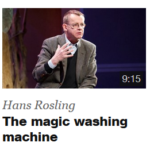Digital red envelopes vs. paper money
For many people in China, celebrating the new year by handing out red packets of money often referred to as hongbao, is part of the holiday tradition. However, digital messaging apps in the country, such as WeChat, have brought this custom into the 21st century, allowing its users to send electronic red packets. The digital red envelope started as an innovative part of festive tradition, but soon it turned out to have huge impact on all parts of social life in China as a powerful payment app. ‘Whether you’re splitting a dinner bill between friends, contributing to shared household costs, or simply sending a gift, payment apps offer convenience within an encrypted, secure environment.’
http://www.bbc.co.uk/news/business-38746298
This article introduces the development of digital red envelopes in China these years. Thinking of Allen and Pryke’s argument, the new technology of mobile P2P payment app brings people and places even closer, both on social occasions (traditional gifting festivals) and on transaction occasions (splitting bills or making online purchases). What’s more, it actually adds the cost of maintaining a social network, contributing to the process of social distancing. With the convenient mobile payment, it is noticeable that Chinese users have to send online red envelopes more frequently (on Valentine’s Day or Christmas, for example, which are not traditional days for red envelopes) and to more friends.
Taking the printing (paper) money as an early form of payment technology revolution, it seems that new payment method tends to contribute to the mobility and circulation of money, as well as shaping the social life. The banknote in Ming Dynasty (around AD1000) in Ashmolean Museum shows how these documents could be used in transactions in places of the coins which they represented. A merchant can make the deal far more easily with paper money than with coins, but guess how much more should he put in the red envelopes when greeting his kids or others in the Chinese New Year?
Contributed by YuranYan on 22/01/2018






